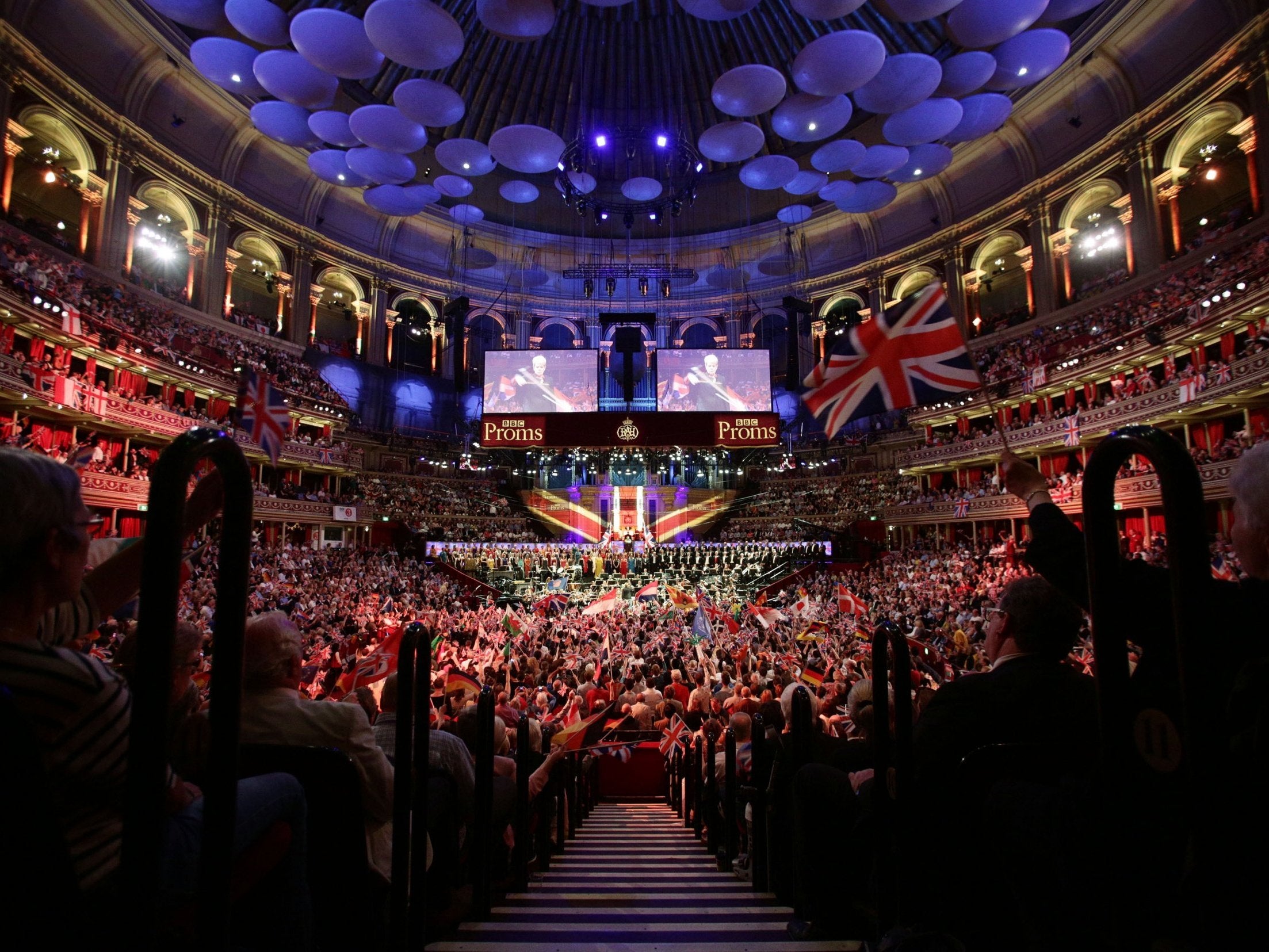‘Rule Britannia’ will be played at Last Night of the Proms without lyrics this year
Broadcaster condemns ‘personal attacks’ on conductor following speculation song could be dropped
Your support helps us to tell the story
From reproductive rights to climate change to Big Tech, The Independent is on the ground when the story is developing. Whether it's investigating the financials of Elon Musk's pro-Trump PAC or producing our latest documentary, 'The A Word', which shines a light on the American women fighting for reproductive rights, we know how important it is to parse out the facts from the messaging.
At such a critical moment in US history, we need reporters on the ground. Your donation allows us to keep sending journalists to speak to both sides of the story.
The Independent is trusted by Americans across the entire political spectrum. And unlike many other quality news outlets, we choose not to lock Americans out of our reporting and analysis with paywalls. We believe quality journalism should be available to everyone, paid for by those who can afford it.
Your support makes all the difference.“Land of Hope And Glory” and “Rule Britannia!” will be performed at the Last Night of the Proms, the BBC has confirmed, following speculation they may be scrapped this year.
Both songs were included in a programme unveiled by the broadcaster on Monday after The Sunday Times reported they were up for discussion in light of the Black Lives Matter movement.
The pieces are usually sung with a live audience but will be performed without lyrics this year, although they are expected to return when the pandemic is over.
The concert is due to take place on 12 September, without an audience.
Organisers were reportedly concerned about the anthems’ links with colonialism and slavery.

In a statement confirming the songs would be performed, the BBC’s condemned “unjustified personal attacks” against this year’s conductor for the Proms.
Dalia Stasevska, who was reportedly was among those eager to update the programme, has received abuse on social media following Sunday’s reports.
The BBC said: “We very much regret the unjustified personal attacks on Dalia Stasevska, BBC Symphony Orchestra principal guest conductor, made on social media and elsewhere.
“As ever, decisions about the Proms are made by the BBC, in consultation with all artists involved.”
The corporation’s statement said: “With much reduced musical forces and no live audience, the Proms will curate a concert that includes familiar, patriotic elements such as Jerusalem and the national anthem, and bring in new moments capturing the mood of this unique time, including “You’ll Never Walk Alone”, presenting a poignant and inclusive event for 2020.”
Downing Street had earlier waded into the controversy. A No10 spokesperson had said the matter was one for the BBC and Proms organisers “but the PM previously has set out his position on like issues and has been clear that while he understands the strong emotions involved in these discussions, we need to tackle the substance of problems, not the symbols”.
Enjoy unlimited access to 100 million ad-free songs and podcasts with Amazon Music
Sign up now for a 4 month free trial (3 months for non-Prime members)
Enjoy unlimited access to 100 million ad-free songs and podcasts with Amazon Music
Sign up now for a 4 month free trial (3 months for non-Prime members)
Oliver Dowden, the culture secretary, said also expressed concern over the speculation and said “confident, forward-looking nations don’t erase their history”.
He wrote on Twitter: “Rule Britannia! and Land of Hope and Glory are highlights of the Last Night of the Proms.”
The cabinet minister said he had raised concerns with the BBC following reports it was considering dropping the songs from the programme.
Recent protests in support of the Black Lives Matter movement sparked conversations over how the UK should deal with its past. Demonstrators and local officials have removed statues with links to slavery and colonialism, but some politicians and counter-protesters have opposed such moves.
International protests took place against racism and police brutality following the death of George Floyd, a black American who died after a police officer knelt on his neck for more than seven minutes.
Additional reporting by Press Association

Join our commenting forum
Join thought-provoking conversations, follow other Independent readers and see their replies
Comments